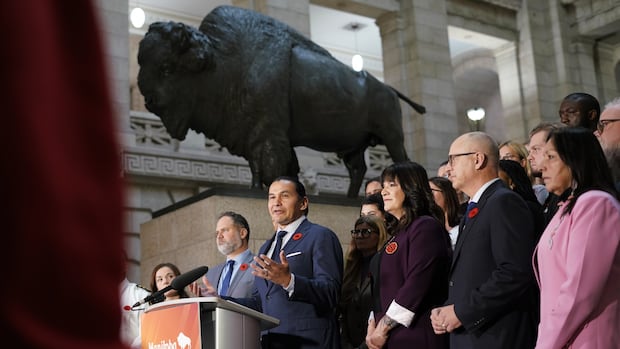Manitoba politicians have voted through a bill that extends how long someone who is highly intoxicated by methamphetamines or other long-lasting substances can be detained, raising the limit from 24 hours to up to 72 hours.
Bill 48, the Protective Detention and Care of Intoxicated Persons Act, passed early Wednesday evening with near-unanimous support. Only one member of the legislative assembly — former NDPer-turned-Independent Mark Wasyliw (Fort Garry) — opposed the bill.
“We are going to make our streets safer through this new, updated legislation that reflects the reality of our streets,” Addictions Minister Bernadatte Smith said in a statement after the vote.
Smith introduced the legislation on Oct. 2. She and Premier Wab Kinew had urged the Progressive Conservatives to support it in recent days, accusing the Opposition of trying to delay its passage after supporting the NDP government’s bill at earlier stages.
Bill 48 has been framed by proponents as a way to boost public safety and help people in the grips of meth-induced psychosis, or under the influence of other long-lasting drugs, who may pose a risk to themselves or others.
The new 72-hour detention law replaces the previous Intoxicated Persons Detention Act, adopted in 1987, which set a 24-hour limit on how long a person can be held at a detox facility, like the one operated by Main Street Project.
That group will operate the three-day protective care centre the NDP plans to open at 190 Disraeli Fwy.
WATCH | Manitoba Legislature passes detox legislation: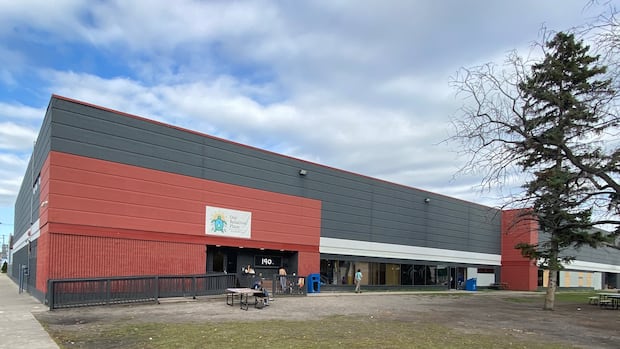
Manitoba NDP’s 72-hour detox centre bill passes
The Manitoba government’s Bill 48, the Protective Detention and Care of Intoxicated Persons Act, was passed Wednesday, extending the length of time people highly intoxicated on drugs like meth can be detained from 24 to up to 72 hours.
The NDP rejected amendments to the new legislation introduced by the Progressive Conservatives last week, which would have included a prohibition on detox sites within 500 metres of a school or daycare, and would have required public consultations and an annual report on who was detained.
Premier Wab Kinew threatened to extend the legislative session if the Tories got in the way of a final vote on the bill.
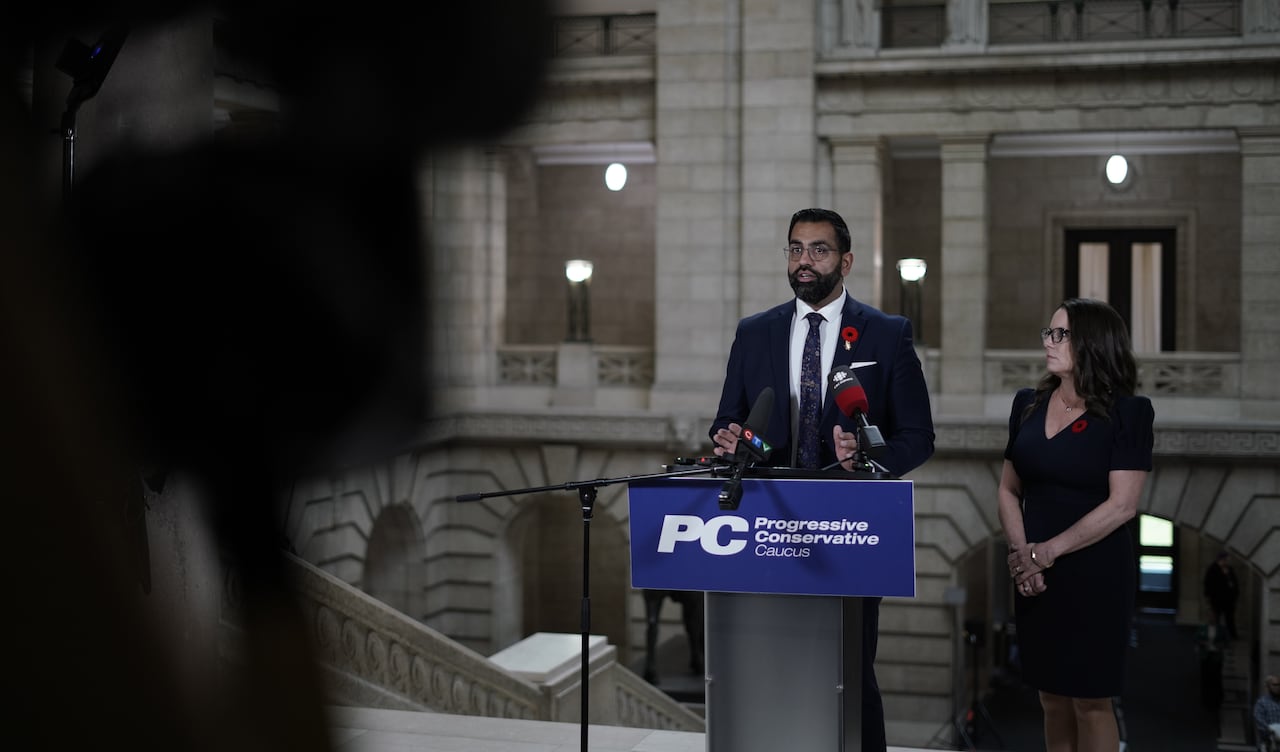 Progressive Conservative Leader Obby Khan and PC MLA Jodie Byram (Agassiz) speak at the legislature ahead of a vote on Bill 48 on Wednesday. (Bryce Hoye/CBC)
Progressive Conservative Leader Obby Khan and PC MLA Jodie Byram (Agassiz) speak at the legislature ahead of a vote on Bill 48 on Wednesday. (Bryce Hoye/CBC)
Ahead of Wednesday’s vote, PC Leader Obby Khan stressed that his party wasn’t delaying a vote on the bill, despite accusations from the NDP.
The PCs support the intent behind the bill, but had reservations about the proposed Disraeli location for the facility, which falls within 500 metres of a school, he said.
“If you believe that having a detention unit within 500 metres of school, a daycare is the right thing to do, then that’s your opinion. We heard from Manitobans. They did not think that was right,” said Khan.
Some members of the public did voice concerns about the location at a committee meeting last month.
Members of Sunshine House, the West Central Women’s Resource Centre and Resource Assistance for Youth raised fears the bill further stigmatizes drug use and criminalizes people who need help with addictions or mental health issues.
Legislation will help first responders: Gillingham
But at an NDP news conference ahead of the vote Wednesday, Gina Smoke, the Indigenous relations director with the union Unifor, spoke about how addiction has impacted her family and community.
“I know it sounds terrible, locking somebody up, but I also have seen people out there, how dangerous they are, and they don’t even know that they’re dangerous,” Smoke said.
“I’ve seen a guy stand there with his hands frozen solid as I was giving him food, and I got help for him, but then he just became super-dangerous to the paramedics that were trying to help him,” she said.
“This goes on and on and on. I work in the encampments, I’ve worked on the streets helping people…. Something needs to be done.”
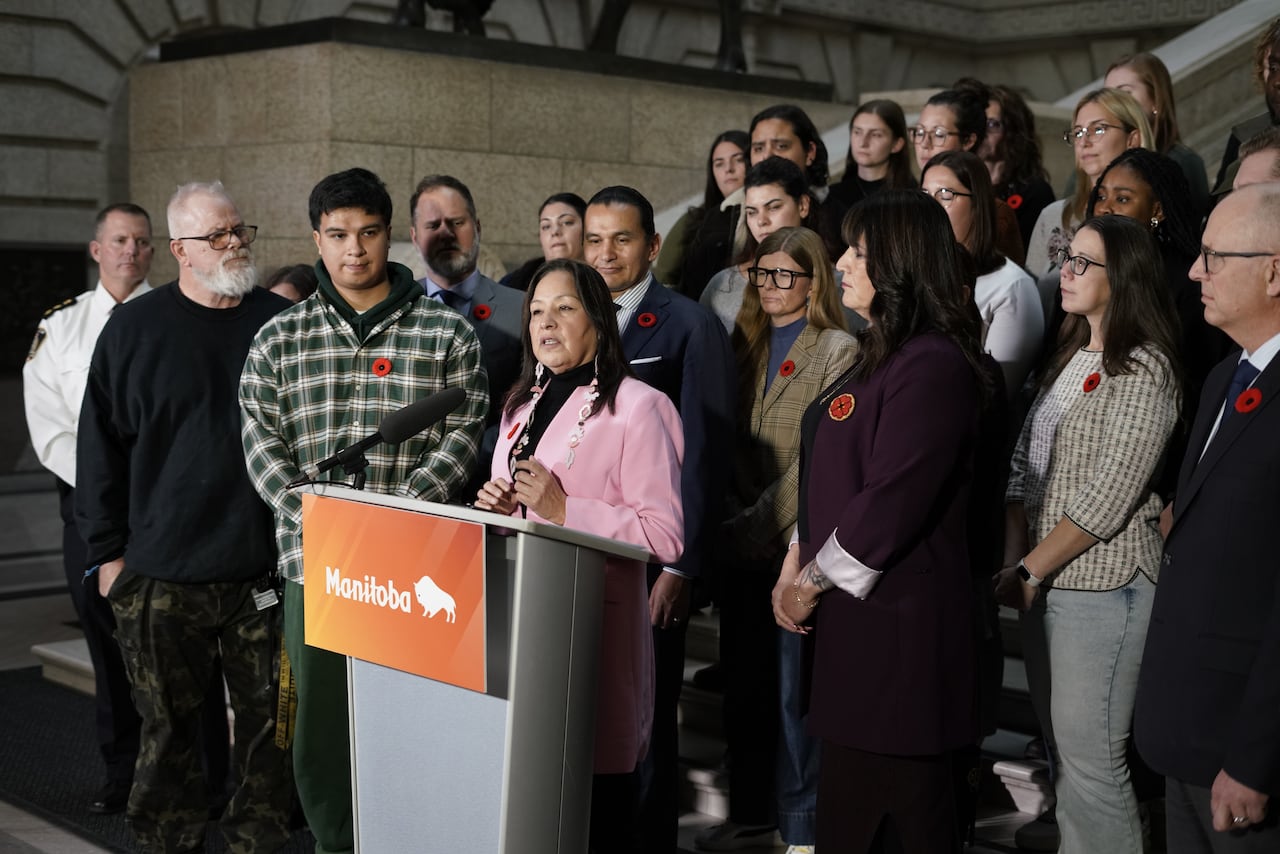 Gina Smoke, centre, speaks in favour of Bill 48 on Wednesday. (Bryce Hoye/CBC)
Gina Smoke, centre, speaks in favour of Bill 48 on Wednesday. (Bryce Hoye/CBC)
The bill also received broad support from emergency services sectors. Winnipeg’s police chief, some physicians, the Paramedic Association of Manitoba, the United Firefighters of Winnipeg and Winnipeg Mayor Scott Gillingham all supported the 72-hour detention.
Gillingham called the bill “compassionate” and a way to help alleviate pressure facing first responders.
“It will help those who are struggling in addiction by giving them a better opportunity to get the resources and the help they need,” he said.
“It will help our front-line responders …. and it will help property owners, business owners, homeowners who see the same individuals on their property, in front of their buildings … who are struggling.”
Rebecca Clifton with the Paramedics Association of Manitoba said paramedics may be called to check on someone high on meth several times in a single shift.
“The calls often take longer, they involve a greater risk and they keep ambulances tied up,” she said.
“Right now these patients are either being held in overcrowded hospitals or short-term in facilities, because there is nowhere else for them to go, or they’re released within hours and paramedics are responding to them the very next day.”
Masking ‘coercion as compassion’: MLA
Fort Garry MLA Wasyliw, who has railed against the bill, accused Kinew during question period Wednesday of trying to “repackage coercion as compassion,” and likened the protective care centre conditions to solitary confinement that will humiliate those detained.
He challenged the premier to spend 72 hours in such a facility.
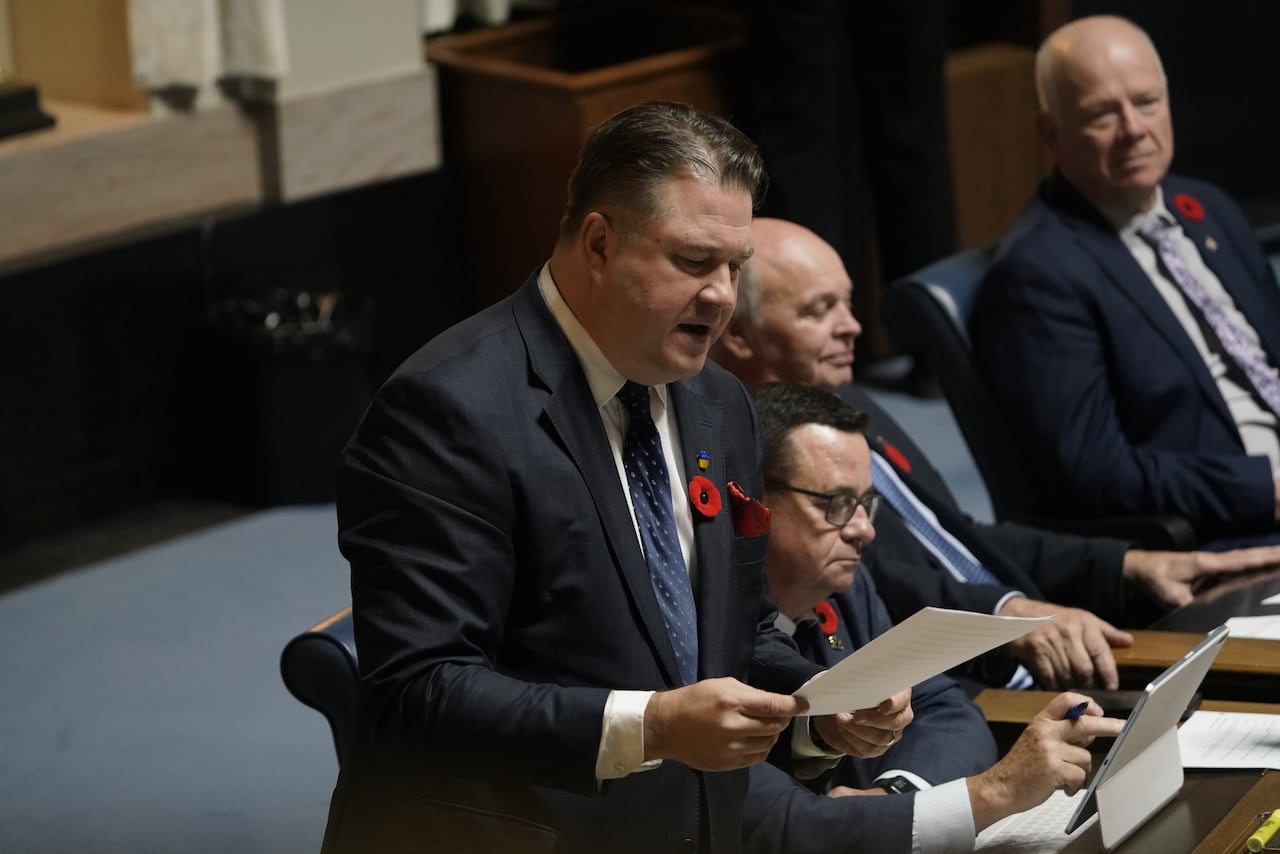 On Wednesday during question period, Independent MLA Mark Wasyliw (Fort Garry) compared a 72-hour detox facility to solitary confinement. (Bryce Hoye/CBC)
On Wednesday during question period, Independent MLA Mark Wasyliw (Fort Garry) compared a 72-hour detox facility to solitary confinement. (Bryce Hoye/CBC)
Kinew said the “ravages of meth addiction” on the street are clear, and something must be done.
“This is just about responding to what the medical experts tell us needs to happen so that people who are using harder drugs than existed in the past can get the care they need today,” the premier said.

